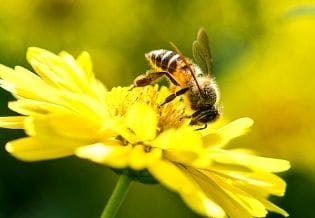About The Journal
Journal of Plant and Animal Ecology (JPAE) is an open access, peer reviewed journal dedicated to publishing original, high-quality research in the fields of plant and animal ecology.
Our Mission
Advance the understanding of ecological processes and promote the conservation of biodiversity through the dissemination of cutting-edge research.
Our Vision
Be a leading journal highlighting impacts of land use, climate change, and human activities on species, emphasizing conservation strategies.
Global Platform
Facilitate global collaboration and advancement of ecological science through open access publishing.
The Journal of Plant and Animal Ecology publishes high-quality research enhancing the understanding of ecological interactions in plant and animal systems. View full scope on our Aims and Scope page.
Community Ecology
Studies of species assemblages, interactions, and community dynamics.
Population Biology
Population dynamics, genetics, and demographic processes.
Behavioral Ecology
Animal behavior in ecological and evolutionary contexts.
Conservation Biology
Biodiversity protection, species recovery, and habitat preservation.
Restoration Ecology
Ecosystem restoration and rehabilitation approaches.
Ecosystem Function
Nutrient cycling, energy flow, and ecosystem services.
JPAE invites authors to submit manuscripts through our Online Manuscript Submission System for efficient and streamlined processing. Detailed guidelines are available on the submission portal.
Manuscript Requirements: Title, authors with affiliations, abstract, introduction, main body, results and discussion, conclusions, and references. All manuscripts must be in English and previously unpublished.
Follow Submission Guidelines for smooth review and timely publication.
JPAE charges a nominal APC to cover publication costs. Waivers are available for authors who lack funds. No submission fees are charged - APCs are due only upon acceptance.
The JPAE editorial board comprises leading researchers in ecology who evaluate scientific quality and technical correctness of each manuscript.
- Researchers and academics in ecology, conservation, and environmental science
- Practitioners and policymakers in ecological management
- Students and educators seeking latest research developments
- Anyone interested in plant-animal interactions and environments
JPAE is committed to open access publishing. All articles are freely available without subscription fees, supporting free exchange of knowledge and advancement of science.
"As Editor of the Journal of Plant and Animal Ecology I have the opportunity to read some few articles that have been published in the Journal. I am quite impressed by the seriousness of the researchers thus far. The journal peer reviewed and editorial process is quite impressive and rigorous."
"The journal of Medical and Psychological Trauma provides readers with the most accomplished and authoritative scholarship, contributing to the dissemination of new ideas and good practice."
Submit Your Research
Join the global ecological research community and share your findings.


